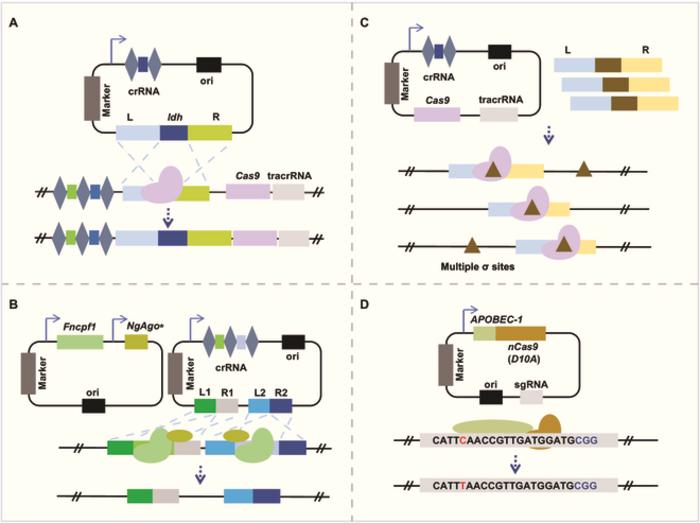Humans can benefit significantly from symbiotic relationships with probiotics—live bacteria and microorganisms that influence the gut microbiota. When consumed in appropriate amounts, probiotics can promote gut health, support the immune system, and enhance metabolism.

Credit: BioDesign Research
Humans can benefit significantly from symbiotic relationships with probiotics—live bacteria and microorganisms that influence the gut microbiota. When consumed in appropriate amounts, probiotics can promote gut health, support the immune system, and enhance metabolism.
Probiotics, widely regarded as a treasure in the field of microbiology, are currently finding new applications in medicine, animal care, and the food industry. However, it is often challenging to use probiotics in their existing form, owing to varying effects of different strains on the health of different individuals. Consequently, finding concrete evidence to support the proposed benefits of probiotics is also difficult.
Fortunately, these challenges can be addressed owing to the tremendous progress that we have witnessed in genetic engineering over the past decade, especially after the introduction of the immensely popular CRISPR-Cas editing system. By editing, deleting, or introducing specific genes with these tools, we can tailor the activities of probiotic organisms to fit our health needs. To support the researchers interested in pushing the limits of the field, Professor Nan Peng from the Huazhong Agricultural University, China, along with his colleagues, recently published a review article in Volume 5 of BioDesign Research on September 29, 2023, summarizing the latest advances and hurdles related to the engineering of probiotics with CRISPR-Cas. “As important genome editing tools, CRISPR-Cas systems have opened the window to new improvements in genome editing dedicated to probiotics thanks to their high efficiency, flexibility, and specificity,” remarks Prof. Peng.
The review begins with a concise overview of CRISPR-Cas systems discovered in microorganisms. In their natural forms, CRISPR-Cas systems are defense tools for bacteria against viruses/phages. When a bacterium survives a viral attack, it stores some viral DNA in the form of CRISPR sequences. If the same virus appears again, the bacterium produces ‘guide RNA’ molecules based on the CRISPR sequences stored as memories. These molecules guide Cas proteins, which act like molecular scissors, to cleave and neutralize the targeted viral DNA. Over time, scientists have found methods to leverage these molecular mechanisms as toolkits for precise gene editing.
In subsequent sections, the research team summarized the key CRISPR-Cas systems that are used to edit genes in several types of probiotic organisms. These include lactic acid bacteria, yeast, Bacillus, and others. Subsequently, they highlighted recent developments on the therapeutic applications of probiotics that were genetically modified through the CRISPR-based systems. “The intake of probiotics has been gradually demonstrated as an effective strategy to prevent or mitigate diseases in humans. Among various probiotics evaluated, genetically modified probiotic strains can have stronger or new properties and exhibit greater research and application value,” states Prof. Peng. Certain examples include the use of Escherichia coli (E. coli) to eliminate antibiotic-resistant bacteria in the gut and protect it against harmful E. coli infections, the use of yeast to treat inflammatory bowel disease, and the use of Bacillus subtilis to regulate metabolism and help prevent obesity.
Finally, the article presents unsolved issues for the CRISPR-based genetic modification of probiotics and the obstacles to their clinical application, alongside potential strategies to address them. A few of these strategies include the development of CRISPR tools to reduce errors during cleaving and gene insertion, optimization of the editing system, using alternative Cas9 proteins (such as dead-Cas9), and ensuring the stability of engineered strains. “Undoubtedly, the use of engineered probiotics to promote the development of animal and human health industries will face great opportunities and challenges in the future,” concludes Prof. Peng, optimistic about what could be just over the horizon in this exciting and flourishing field.
Let us hope that these research efforts allow us to lead healthier lives sooner rather than later!
###
References
Authors
Ling Liu1,2, Shimaa Elsayed Helal1, and Nan Peng1
Affiliations
1National Key Laboratory of Agricultural Microbiology, Hubei Hongshan Laboratory, College of Life Science and Technology, Huazhong Agricultural University
2CABIO Biotech (Wuhan) Co. Ltd.
About Professor Nan Peng from Huazhong Agricultural University
Dr. Nan Peng obtained his bachelor’s and Ph.D. degrees in Bioengineering from Huazhong Agricultural University in 2004 and 2009, respectively. Shortly afterwards, he obtained a position as a Lecturer, before being promoted to the post of Professor in 2018. He has been actively engaged in research involving the screening, engineering, and application of beneficial microorganisms, with a recent focus on CRISPR-Cas systems and the fermentation and production of lactic acid bacteria. He has published over a hundred research papers on these topics and has obtained six patents.
Journal
BioDesign Research
DOI
10.34133/bdr.0017
Method of Research
Literature review
Subject of Research
Not applicable
Article Title
CRISPR-Cas-Based Engineering of Probiotics
Article Publication Date
29-Sep-2023
COI Statement
The authors declare that they have no competing interests.




